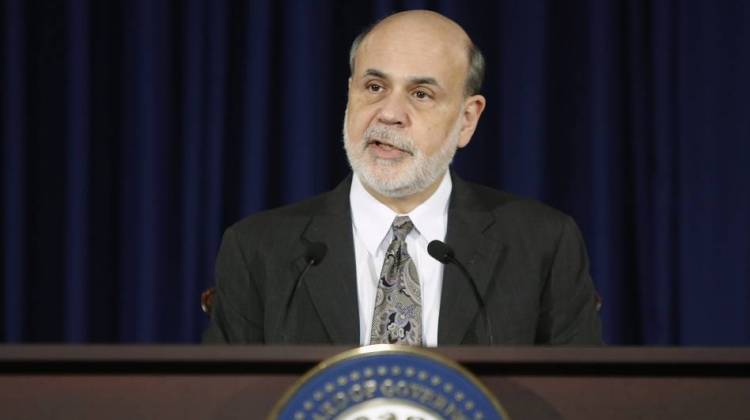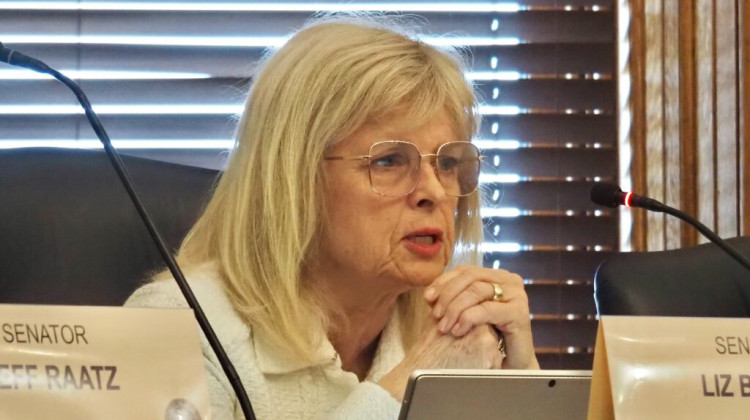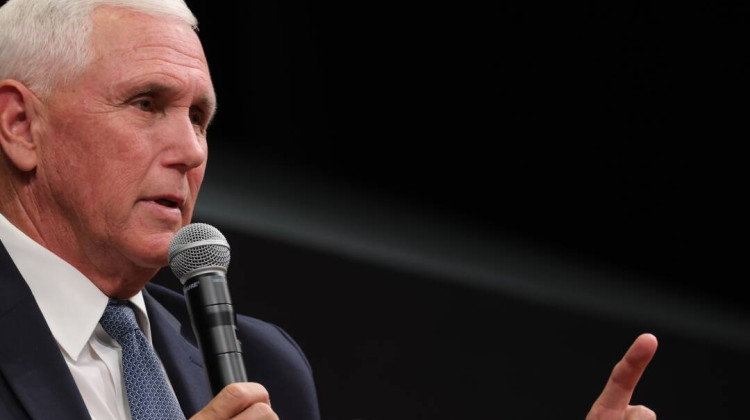(This post was last updated at 3:50 p.m. ET)
Citing an improving economy, the Federal Reserve announced Wednesday that it would begin gradually paring back an $85 billion-a-month bond-buying program aimed at stimulating growth.
The move was seen as a tentative vote of confidence and comes amid an improving jobs picture and other positive signs as the U.S. continues struggles to emerge from the worst downturn since the Great Depression.
The Fed said it would reduce its purchases of Treasurys and mortgage-backed securities by $10 billion a month beginning in January. In a news conference, Chairman Ben Bernanke, said he expects the Federal Open Market Committee to take "further measured steps at future meetings" to reduce the program, which began in September 2012.
The Federal Open Market Committee says in a statement that it had "decided to modestly reduce the pace of its asset purchases."
"Beginning in January, the Committee will add to its holdings of agency mortgage-backed securities at a pace of $35 billion per month rather than $40 billion per month, and will add to its holdings of longer-term Treasury securities at a pace of $40 billion per month rather than $45 billion per month."
Bernanke, speaking at what is likely to be his last news conference before handing over the post to current Vice Chair Janet Yellen, said the FOMC had "seen meaningful, cumulative progress in the labor market."
The Committee said it would closely monitor the progress of the economy in coming months to determine when it was appropriate to further reduce bond-buying and that it would continue to "employ its other policy tools as appropriate, until the outlook for the labor market has improved substantially in a context of price stability."
"My expectation is for similar moderate steps going forward throughout most of 2014," Bernanke said.
He also said that "15 of 17 FOMC do not foresee a funds rate increase before 2015."
The committee said it would keep the federal funds rate of 0 to 1/4 percent "at least as long as the unemployment rate remains above 6-1/2 percent, inflation between one and two years ahead is projected to be no more than a half percentage point above the Committee's 2 percent longer-run goal."
The Fed is keen to keep inflation in a narrow Goldilocks range, not too high and not too low. As NPR's Marilyn Geewax reported on Tuesday, an inflation rate that is too low is not good for economic growth.
The policy shift comes amid November's employment report, which saw a better-than-expected 203,000 new jobs and an unemployment rate that fell to 7 percent for the first time in five years.
"Bernanke, in the final weeks of his eight-year tenure, is curtailing the purchases that swelled the Fed's balance sheet almost to $4 trillion as he sought to put millions of jobless Americans back to work. The policy, supported by his designated successor, [Yellen], stirred concern it risks inflating asset-price bubbles even as its economic benefits ebbed."
According to The Associated Press:
"Stocks surged after the Fed's policy statement was released, signaling investors approved of the modest tapering and the stronger pledge to keep short-term rates low for an extended time.
"The Dow Jones industrial average rose more than 150 points minutes after the announcement."
9(MDEwMDc1MzM3MDEzNDczOTA0MDc1MzViMQ001))
 DONATE
DONATE









 Support WFYI. We can't do it without you.
Support WFYI. We can't do it without you.